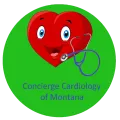
Table of Contents
As we navigate an increasingly fast-paced and demanding work environment, the significance of proactive health measures cannot be overstated. Executive heart screening is an essential health service specifically designed for individuals in high-pressure roles, providing critical insights into cardiac health and helping to prevent serious health issues. Here are several compelling reasons why this screening is vital:
1. Early Detection of Heart Disease
Cardiovascular diseases often develop silently, with few apparent symptoms until a significant event occurs, such as a heart attack. Regular screenings can identify risk factors such as high blood pressure, high cholesterol, and abnormal heart rhythms early on, allowing for timely intervention and management.
2. Tailored Health Strategies
Executive cardiac screening offers personalized assessments tailored to each individual’s risk profile. By evaluating factors such as family history, lifestyle choices, and existing health conditions, we can create personalized health plans designed to reduce cardiovascular risks.
3. Stress Management
High-level executives frequently encounter significant stress, which can adversely affect heart health. Screening provides an opportunity to evaluate the impact of stress on the cardiovascular system. By identifying stress-related health issues early, individuals can implement effective stress management strategies, such as exercise, meditation, or counseling.
4. Enhancing Performance and Productivity
A healthy heart is crucial for optimal performance and productivity. By ensuring that cardiac health is monitored and maintained, executives can enhance their cognitive function, energy levels, and overall efficiency. A proactive approach to heart health can lead to improved decision-making and leadership qualities.
5. Encouraging a Culture of Health in the Workplace
When executives prioritize their health through screening, it sets a precedent within the organization. Employees are likely to follow suit, fostering a culture of wellbeing and health consciousness. This can lead to a healthier workforce, reduced absenteeism, and increased morale.
6. Planning for the Future
Understanding one’s cardiovascular health can inform future health choices and lifestyle modifications. Equipped with knowledge gained from screening, executives can proactively manage their health, making informed decisions about diet, exercise, and other lifestyle factors that impact their heart health.
Executive cardiac screening is not just a health assessment; it’s an essential investment in the future of individuals and organizations alike. By prioritizing heart health, executives can not only safeguard their wellbeing but also enhance their performance and leadership capabilities. Taking proactive steps towards cardiac screening is a commitment to a healthier and more productive life.
7. Executive Heart Screening Diagnostic Tools
Executive cardiac screening is a crucial preventive measure that utilizes advanced diagnostic tools to assess cardiovascular health, enabling the early detection and intervention of potential issues. Below, we examine the key components of executive cardiac screening and their importance in protecting heart health.
1. EKG (Electrocardiogram)
An EKG measures the electrical activity of the heart, providing essential information about heart rhythm and structure. This non-invasive test can reveal abnormalities that may indicate various cardiac issues, such as arrhythmias or past heart attacks. Regular EKG screenings can help detect these problems early, allowing for appropriate interventions.
2. Echocardiogram
An echocardiogram, also known as a heart ultrasound, uses sound waves to create images of the heart’s structure and function. This test evaluates the size and shape of the heart, as well as the function of its chambers and valves. By identifying potential issues such as valve disorders or cardiomyopathy, an echocardiogram plays a crucial role in evaluating cardiovascular health and informing treatment decisions.
3. Ankle-Brachial Index (ABI)
The Ankle-Brachial Index is a simple, non-invasive test that compares blood pressure readings in the ankle and arm to assess for peripheral artery disease (PAD). A low ABI can indicate poor circulation and increased risk of cardiovascular events. Early detection of PAD through this screening allows for timely interventions, such as lifestyle modifications or medical treatment.
4. Carotid Intima-Media Thickness (CIMT)
CIMT measures the thickness of the arterial walls in the carotid arteries, which can be an early indicator of atherosclerosis. This simple ultrasound test helps assess an individual’s risk for heart disease and stroke. Monitoring CIMT can lead to preventative measures that slow the progression of cardiovascular disease.
5. Abdominal Aortic Aneurysm (AAA) Screening
An abdominal ultrasound can detect an abdominal aortic aneurysm, a serious condition that can lead to life-threatening complications if not addressed. Early detection of AAA through screening can lead to timely surgical intervention, significantly reducing the risk of rupture and its associated dangers.
6. 48- Hours Holter Monitor
A 48-hours Holter monitor records the heart’s electrical activity continuously over two days, allowing for the detection of irregular heart rhythms that may not appear during a standard EKG. This extended monitoring can identify transient arrhythmias and other heart issues, providing a comprehensive view of heart health over time.
7. Cleerly CTA: Predicting Your Risk for Heart Attack
The use of advanced technologies, such as Cleerly’s Coronary CTA (Computed Tomography Angiography) analysis, employs artificial intelligence to assess coronary artery disease (CAD). This innovative approach generates detailed images of coronary arteries, identifying blockages or lesions that standard imaging might miss. Early identification of CAD can lead to proactive lifestyle changes and medical therapies to mitigate risks.
Conclusion
Executive cardiac screening is essential for the preventive maintenance of heart health among high-level executives. By utilizing a suite of advanced diagnostic tools—such as EKG, echocardiogram, ABI, CIMT, AAA screening, Holter monitoring, and AI-enhanced coronary analysis—executives can gain valuable insights into their cardiovascular health. Early detection and intervention can lead to improved quality of life, enhanced productivity, and a stronger organizational culture of health and wellness. Prioritizing regular cardiac screenings is not only a personal responsibility but also a crucial investment in one’s professional journey and overall well-being.
Call us today and take control of your heart health!

